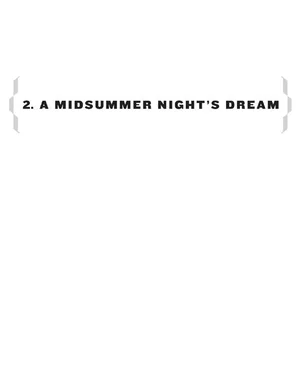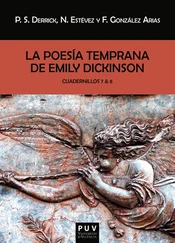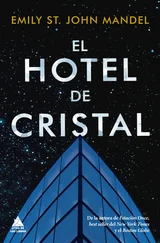Emily Mandel - Station Eleven
Здесь есть возможность читать онлайн «Emily Mandel - Station Eleven» весь текст электронной книги совершенно бесплатно (целиком полную версию без сокращений). В некоторых случаях можно слушать аудио, скачать через торрент в формате fb2 и присутствует краткое содержание. Год выпуска: 2014, ISBN: 2014, Издательство: Knopf, Жанр: Старинная литература, на английском языке. Описание произведения, (предисловие) а так же отзывы посетителей доступны на портале библиотеки ЛибКат.
- Название:Station Eleven
- Автор:
- Издательство:Knopf
- Жанр:
- Год:2014
- ISBN:9780385353311
- Рейтинг книги:4 / 5. Голосов: 1
-
Избранное:Добавить в избранное
- Отзывы:
-
Ваша оценка:
- 80
- 1
- 2
- 3
- 4
- 5
Station Eleven: краткое содержание, описание и аннотация
Предлагаем к чтению аннотацию, описание, краткое содержание или предисловие (зависит от того, что написал сам автор книги «Station Eleven»). Если вы не нашли необходимую информацию о книге — напишите в комментариях, мы постараемся отыскать её.
Station Eleven — читать онлайн бесплатно полную книгу (весь текст) целиком
Ниже представлен текст книги, разбитый по страницам. Система сохранения места последней прочитанной страницы, позволяет с удобством читать онлайн бесплатно книгу «Station Eleven», без необходимости каждый раз заново искать на чём Вы остановились. Поставьте закладку, и сможете в любой момент перейти на страницу, на которой закончили чтение.
Интервал:
Закладка:
Late in the day, she found a folded piece of paper in her pocket. She recognized August’s handwriting.
A fragment for my friend—
If your soul left this earth I would follow and find you
Silent, my starship suspended in night
She’d never seen his poetry before and was impossibly moved by it. “Thank you,” she said when she saw him next. He nodded.

The land became wilder, the houses subsiding. They had to stop three times to clear fallen trees. They used two-handed saws, working as quickly as possible with sweat soaking through their clothes, scouts posted here and there watching the road and the forest, jumping and aiming their weapons at small sounds. Kirsten and August walked out ahead over the conductor’s objections. A half mile beyond the stalled caravans, they came upon a rolling plain.
“A golf course,” August said. “You know what that means.” They’d found two full bottles of scotch and a can of miraculously still-edible cocktail olives in a golf-course clubhouse once, and August had been trying to replicate the experience ever since.
The clubhouse was at the end of a long driveway, obscured behind a bank of trees. It was burnt out, the roof draped like fabric from the three remaining walls. Golf carts were toppled over on their sides in the grass. The sky was darkening now and it was hard to see much of the clubhouse interior in the pre-storm light, just glints of shattered glass where the windows had been. Too dangerous to go in with the roof half-fallen. On the far side they found a small man-made lake with a rotted pier, a flicker of movement under the surface. They walked back to the caravans for the fishing equipment. The first and third cellos were sawing at the last fallen tree.
Back at the golf-course pond there were so many fish that it was possible to catch them with the net alone, scooping them up from the overcrowded water. The fish were small brownish things, unpleasant to the touch. Thunder in the distance and then a short time later the first drops of rain. August, who carried his instrument at all times, wrapped his violin case in a plastic sheet he kept in his bag. They worked through the downpour, Kirsten dragging the net through the water, August gutting and cleaning. He knew she couldn’t stand to gut fish—something she’d seen on the road that first year out of Toronto, a fleeting impression of some vision that she couldn’t exactly remember but that made her ill when she tried to consider it—and he’d always been kind about it. She could hardly see him through the rain. For a moment it was possible to forget that three people were missing. When the storm at last subsided they filled the net with fish and carried it back along the driveway. Steam was rising from the road. They found the place where the fallen trees had been cut and pulled off the road, but the Symphony had departed.
“They must’ve passed by on the road while we were fishing,” August said. It was the only reasonable conclusion. They’d confirmed the route with the conductor before they’d returned to the golf course with the fishing net. The pond had been far enough off the road that they wouldn’t have seen the Symphony, hidden as they were behind the clubhouse, and the sound of the Symphony’s passing would have been lost in the storm.
“They moved fast,” Kirsten said, but her stomach was clenched, and August was jingling the handful of change in his pocket. It didn’t entirely add up. Why would the Symphony travel in a downpour, unless there was some unexpected emergency? The storm had washed the road clear of tracks, leaves and twigs in swirled patterns over the pavement, and the heat was rising again. The sky had a broken-apart look about it now, patches of blue between the clouds.
“The fish will go bad fast in this heat,” August said.
This was a quandary. Every cell in Kirsten’s body ached to follow the Symphony, but it was safer to light a fire in daylight, and they’d eaten nothing but a strip or two each of rabbit jerky that morning. They gathered wood for a fire but of course everything was wet and it took a long time to spark even the slightest flame. The fire smoked badly, their eyes stinging while they cooked, but at least the smoke replaced the stench of fish from their clothes. They ate as much fish as they could and carried the rest with them in the net, set off half-sick down the road, past the golf course, past a number of houses that had obviously been ransacked years earlier, ruined furniture strewn about on the lawns. After a while they jettisoned the fish—it was turning in the heat—and sped up, walking as quickly as possible, but the Symphony was still out of sight and surely by now there should have been some sign of them, hoofprints or footprints or wheel marks on the road. They didn’t speak.
Near twilight, the road crossed under a highway. Kirsten climbed up to the overpass for a vantage point, hoping that the Symphony might perhaps be just ahead, but the road curved toward the distant shine of the lake and disappeared behind the trees. The highway was miles of permanent gridlock, small trees growing now between cars and thousands of windshields reflecting the sky. There was a skeleton in the driver’s seat of the nearest car.
They slept under a tree near the overpass, side by side on top of August’s plastic sheet. Kirsten slept fitfully, aware each time she woke of the emptiness of the landscape, the lack of people and animals and caravans around her. Hell is the absence of the people you long for.
24
ON THEIR SECOND DAYwithout the Symphony, Kirsten and August came upon a line of cars, queued along the shoulder of the road. It was late morning and the heat was rising, a hush falling over the landscape. They’d lost sight of the lake. The cars cast curved shadows. They’d been cleaned out, no bones in backseats or abandoned belongings, which suggested someone lived near here and traveled this route. An hour later they reached a gas station, a low building alone by the road with a yellow seashell sign still standing, vehicles crowded and blocking one another at the pumps. One was the color of melted butter, black lettering on the side. A Chicago taxicab, Kirsten realized. Someone in the very final days had hailed one of the last taxis in the rioting city, negotiated a price and fled north. Two neat bullet holes in the driver’s side door. A dog barked and they froze, their hands on their weapons.
The man who came around the side of the building with a golden retriever was in his fifties or sixties, gray hair cut very short and a stiff way of moving that suggested an old injury, a rifle held at his side. He had a complicated scar on his face.
“Help you?” he asked. His tone wasn’t unfriendly, and this was the pleasure of being alive in Year Twenty, this calmer age. For the first ten or twelve years after the collapse, he would have been much more likely to shoot them on sight.
“Just passing through,” Kirsten said. “We mean no harm. We’re headed for the Museum of Civilization.”
“Headed where, now?”
“The Severn City Airport.”
August was silent beside her. He didn’t like to speak to strangers.
The man nodded. “Anyone still out there?”
“We’re hoping our friends are there.”
“You lose them?”
“Yes,” Kirsten said. “We lost them.” August sighed. The absence of the Symphony from this route had been obvious for some time. They had passed over patches of soft earth with no tracks. No horse manure, no recent wheel ruts or footprints, no sign at all that twenty-odd people, three caravans, and seven horses were ahead of them on this road.
Читать дальшеИнтервал:
Закладка:
Похожие книги на «Station Eleven»
Представляем Вашему вниманию похожие книги на «Station Eleven» списком для выбора. Мы отобрали схожую по названию и смыслу литературу в надежде предоставить читателям больше вариантов отыскать новые, интересные, ещё непрочитанные произведения.
Обсуждение, отзывы о книге «Station Eleven» и просто собственные мнения читателей. Оставьте ваши комментарии, напишите, что Вы думаете о произведении, его смысле или главных героях. Укажите что конкретно понравилось, а что нет, и почему Вы так считаете.












